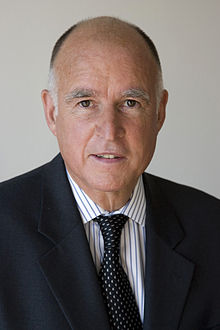Sacramento, CA…Today, Governor Jerry Brown signed SB 1046 into law, expanding a four-county pilot program that requires ignition interlocks for all drunk drivers.
SB 1046, authored by Senator Jerry Hill, allows first-time drunk driving offenders to drive with an ignition interlock following arrest or conviction, instead of forfeiting their driving privileges altogether or driving with a route-restricted license. Repeat offenders will now be required to install an ignition interlock after conviction.

Mothers Against Drunk Driving (MADD), led by a team of California volunteers and staff, strongly supported SB 1046 along with more than 40 other traffic safety, medical and first responder organizations.
“No parent should have to lose their child to the criminal negligence of a drunk driver — especially when technology exists to prevent such a tragedy,” said Mary Klotzbach, a member of MADD’s national board whose son Matt was killed by a drunk driver in 2001. “Ignition interlocks are an effective weapon against drinking and driving. Today, I want to thank Governor Brown, Senator Jerry Hill and the California Legislature for taking a positive step toward addressing California’s drunk driving problem by making all California roadways safer and moving the pendulum toward #nomorevictims.”
SB 1046 received unanimous approval from California’s Senate and Assembly and five legislative committees.
Currently in California, ignition interlocks are mandatory for all convicted drunk driving offenders in Alameda, Los Angeles, Sacramento and Tulare counties. Under the new law, which takes effect Jan. 1, 2019, ignition interlocks will be required for all convicted repeat offenders and first offenders who cause an injury. Other first offenders must either install an ignition interlock or apply for a route-restricted license.
“MADD is so grateful to Senator Hill, Governor Brown and the entire California Legislature for recognizing that ignition interlocks save lives,” said MADD National President Colleen Sheehey-Church. “All too often, drunk driving offenders ignore license suspensions and drive anyway. All convicted drunk driving offenders should be required to blow into an ignition interlock to prove they are sober before starting their vehicles.”
According to data collected by MADD late last year, ignition interlocks have stopped about 125,000 attempts by individuals with a blood alcohol concentration of .08 or more to start their vehicles since the four-county pilot program began in 2010. In all, more than 1 million attempts to drive after consuming alcohol were prevented.
“SB 1046 will lead to safer roadways for all Californians,” said Hill, D-San Mateo and Santa Clara Counties. “We’ve already seen this to be true in the four counties conducting the pilot program.”
A June 2016 California DMV study of the four-county pilot program also found ignition interlocks are 74% more effective in reducing DUI recidivism than license suspension alone. The findings mirror other studies around the world on these life-saving devices.
Sarah Longwell, managing director of the American Beverage Institute, released the following statement:
While the American Beverage Institute supports mandated ignition interlocks for high-BAC and repeat offenders, we do not support the bill that Gov. Brown signed into law today which expands the mandate to first time and low-blood alcohol content (BAC) offenders. In doing so, Governor Brown ignores the California Department of Motor Vehicle’s evaluation of the pilot program, which recommended against expanding the ignition interlock mandate statewide. The recommendation not to expand the program was due, in part, to the finding that ignition interlocks increase the likelihood of a traffic accident by between 6 and 16 percent because they distract drivers. Furthermore, the California DMV concluded that the “program does not appear to be associated with a reduction in the number of first-time or repeat DUI convictions.” Rather than a counterproductive mandate on moderate offenders, California should focus on increasing ignition interlock compliance rates among hardcore offenders who cause the vast majority of alcohol-related traffic fatalities.
Additionally, the National Highway Traffic Safety Administration estimates that only 15 to 20 percent of offenders actually install the devices when mandated. The resources required to ensure compliance of ever-expanding interlock mandates may not be welcomed by California taxpayers.
Targeting DUI offenders with one-size-fits-all legislation is a wrongheaded approach and misuse of resources. Lawmakers should focus on hardcore drunk drivers by concentrating on the enforcement of existing laws.


